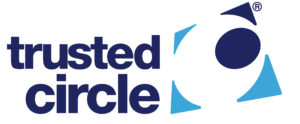Essential tips when using Test Houses
As a retailer or brand, large or small, your product will need testing at various stages of the product’s life cycle; product development, first bulk production (particularly if the product has a promotional benefit eg water resistant) , ‘Due Diligence’ testing of finished goods (a legal requirement) and customer compliant resolution – e.g. safety related injury, skin irritation, loose dye staining, etc.
Choosing the test house group (or groups) to work with
Assuming you elect to work with one of the major global test house groups, you will know they all have the majority of their testing capability covering the same main areas of colour fastness, physical, safety, and chemical analysis testing.
On the surface – it may appear that only the price of testing is the distinguishing factor between the organisations.
I would suggest that, based upon over three decades of experience at a major UK retailer, whilst price is key, the following are arguably even more important to consider for a technical team at a retailer or brand:
- Globally recognised credibility- Important, so that if a test report with its name on could, in a legally contested issue, stand up to scrutiny in a court of law, or with a very demanding customer or local authority
- Location of laboratories- Is the test house group represented in the key sourcing countries your company uses? If not, and samples need to be flown to a nearby (or remote) country for key tests, time is lost, and it may be difficult to speak to the actual technician who carried out the test, in the case of a query.
- Global experts- In critical speciality areas e.g. chemical analysis (referred to last month by my former colleague Phil Patterson), does the test house group have a series of ‘global experts’ to call upon in cases of complex issues to be resolved, offering expert opinions, or providing know-how on standards and legislation?
- Interpretation of results service-Is the test house group primarily set up to just deliver reports, and leave it to you, the retailer, to read and interpret those reports? Or do they offer, as part of their service, an accessible team of experts who can offer interpretation of the results? This can be very important if you have new technologists in your team, who may not always have the experience to understand, for example, ‘borderline’ test results.
- Liaison- Does the test house have a knowledgeable liaison team who regularly visit your offices, or possibly, if the business is large enough, are prepared to have an Intern from their organisation based within your buying office?
- Special projects- When these arise e.g. benchmarking one of your products against its equivalent being sold by other retailers, do they have the resource and project management skills to manage and deliver this effectively?
Many retailers and brands choose to have two (or more) test house partners, partly to ensure that price competitiveness between the laboratories is actively challenged, but also because certain test houses may not always be represented in every sourcing country, or key location, whereas its competitor may be.
Finally, I would recommend that whilst links with the test houses should primarily be with the product specific technologist in the buying office, appointing a central technical expert, or small team, to be the businesses’ key link, can ensure that standards, projects, and new test method development, are all effectively managed and coordinated across the organisation.
IAN MORRIS




Leave a Reply
Want to join the discussion?Feel free to contribute!